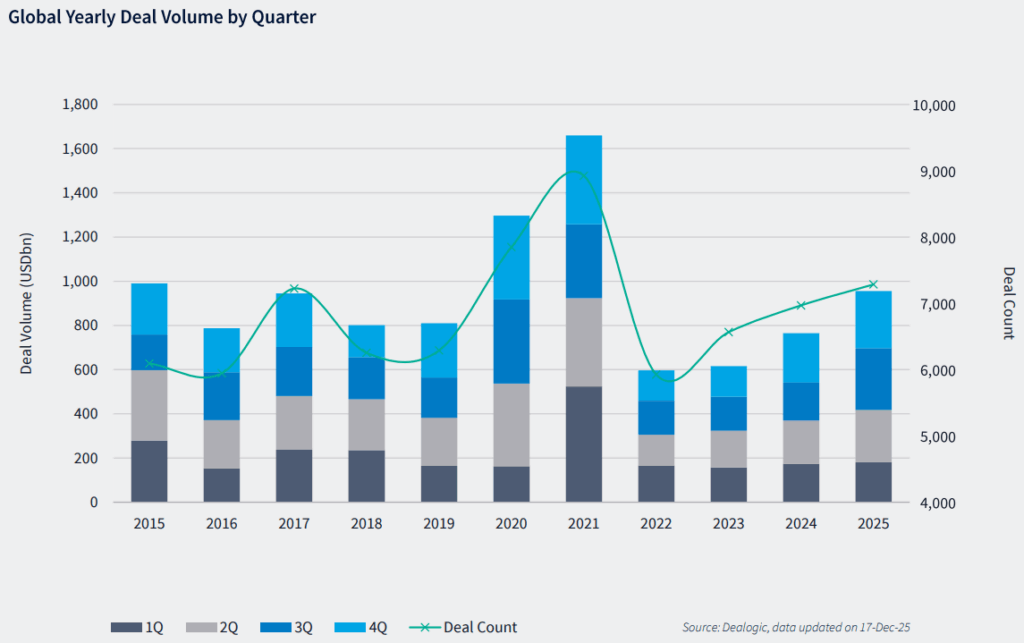Sponsors eye windows for European equity sales for LP capital returns – ECM Pulse EMEA
Private equity companies are in conversations with advisors over the sell-down of equity stakes in listed companies in the next few weeks to return capital to volatility battered Limited Partners (LPs).
The theme of sponsors wanting to monetise assets to return capital to their largest investors is not a new one, but the need has become more pressing with several LPs sitting on bruising losses on their listed equity holdings due to a brutal equity market sell-off in recent weeks, following the announcement of sweeping global tariffs on imports entering the US.
But a cessation in equity market losses after US President Donald Trump paused ‘reciprocal tariffs’ on major trading partners for 90 days has given investors a reason to start looking at the market again, and ECM bankers now hope that there are days when deals can be done.
“A lot of investors we speak to are ready to play again,” one banker told ECM Pulse, who noted there is extra sell-side pressure to bring deals to market, even if underlying share prices are lower than they have been in the recent past.
“Sponsors are very keen to execute block trades to demonstrate to LPs they are returning capital,” he said. “It is a theme we are seeing a lot more, and there is a lot of pressure on sponsors to show they can monetise listed assets, even if the IPO market is harder.”
A private equity placement agent confirmed that pressure was building on many sponsors and that capital distributions to LPs have remained at the lowest point they’ve ever been.
The agent added that on average there is around a 5%-10% distribution to NAV ratio among sponsors now, compared to 20-30% ten years ago.
“LPs are looking at commitments they have that are highly correlated to public markets,” he said. “If a GP’s strategy relies heavily on that market, then conversations with LPs are going to be difficult.
“This is particularly pertinent for tech growth investors or VC investors, but will also impact the established large-cap buyout funds.”
He added that some LPs that are long on the CBOE Vix index, indicating the expectation that volatility will stay high for some time, are likely instead to favour investments in areas such as private debt, infrastructure, or small-cap buyout funds, given more realisation of investment in those markets.
Blocks could provide the answer
For sponsors sitting on already listed holdings, perhaps due to an earlier IPO, blocks provide an opportunity for quick capital return.
Several sponsors have already utilised the market to sell down listed holdings this year, including EQT, which sold down its shares in Swiss skincare company Galderma, and CVC, which sold some of its stake in Italian pharmaceutical company Recordati in February.
Apollo Asset Management has also been active in blocks, selling down a EUR 405.6m stake in Italian gaming company Lottomatica in early March.
All three private equity giants retain significant stakes in these holdings. Both CVC and Apollo were released from lock-up agreements on these assets in May, and EQT on its Galderma stake in June. However, lock-ups can be occasionally waived for sellers to go earlier if there is significant demand for a stock.
There have also been some sectors that have been somewhat immune to volatility – defence has been particularly strong. It was notable that, according to Dealogic, the only European block of any significant size last week to be priced was a EUR 30.94m sell-down in Steyr Motors, a maker of high-performance engines particularly for the defence industry, by listed sponsor Mutares SE & Co KGaA.
“Investors want more defence exposure and exposure to the defence supply chain,” said a second ECM banker. “Lots of long-onlys now have ESG exemptions for defence, and those that do are looking for any listed exposure they can get.”
There are some sponsors that can utilise this theme to increase capital returns.
HLD Europe retains 20 million shares in French optical devices company Exosens, which serves several defence clients.
There is also Triton and its holding in Renk, the German drive solutions manufacturer, predominantly focused on defence. The PE firm still holds around an 18.33% stake in the business through Rebecca BidCo, a subsidiary of its “Triton V” fund and has been free from lock-up restrictions since December 2024.
Both stocks have soared since the start of the year, as investors back increased defence spending in Europe to offset American isolationism under the Trump administration.
The market gains last week, the best weekly return since 2022 for the S&P 500, show that there might be opportunities for deals on days when the market is less turbulent.
“Fast-to-market products like ABBs are going to be more receptive to pockets of benign market activity and short deal windows,” said a third banker.
The activity will not be immediate. Most of Europe has a shorter week this week due to Easter and several companies are in first quarter earnings blackouts, preventing several sellers from monetisation.
But a 90-day pause in major US tariffs on Europe could provide short-term deal opportunities in the weeks ahead and several sponsors may use that opportunity to monetise their listed portfolio companies quickly and return some much-needed capital to their LP investors.












